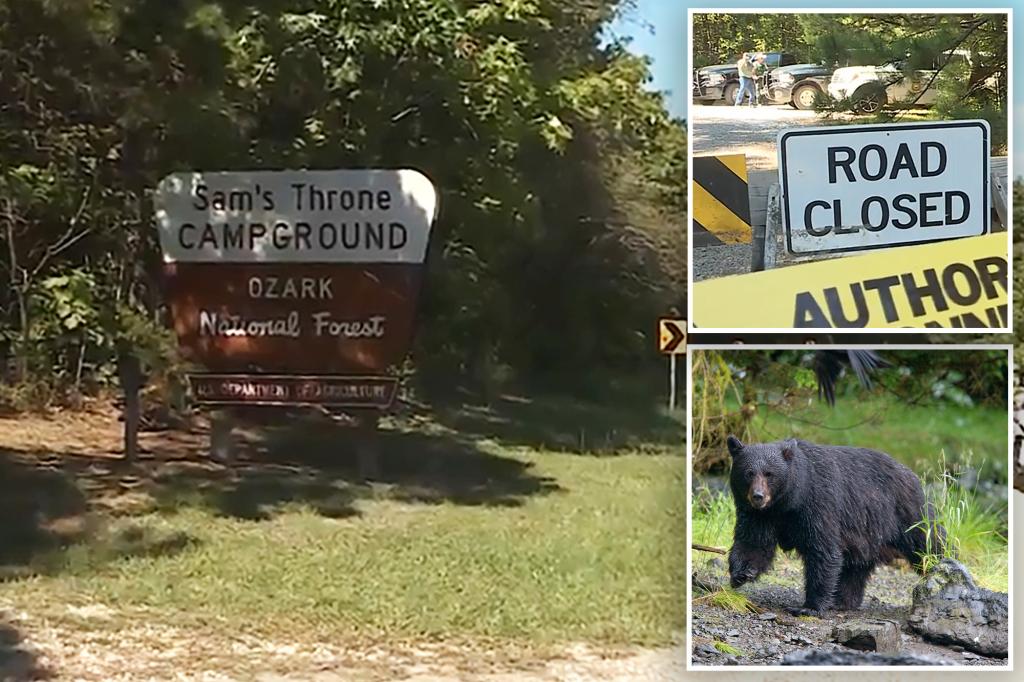A Missouri man was mauled to death at an Arkansas campsite just two days after texting his family photos of a bear wandering near his tent.
The 60-year-old was camping at Sam’s Throne in the Ozark National Forest near Mt. Judea when he stopped responding to his family’s messages, the Newton County Sheriff’s Office said.
His son called police Thursday after not hearing from him “for a couple of days.”
When deputies arrived, they found the man’s truck and campsite abandoned, with clear signs something had gone wrong.
“The campsite had been disturbed and there was evidence of a struggle and injury,” the sheriff’s office said in a statement. “There were also drag marks leading from the campground into the woods.”
The camper’s body was found several yards away with severe injuries, Newton County Sheriff Glenn Wheeler said.
Wheeler said that his office cannot definitely state that the man was killed by a bear “until the Arkansas Crime Lab completes the autopsy.”
“We know without a doubt that a bear was in camp with our victim and the injuries absolutely are consistent with a bear attack,” he added. “This is a highly unusual case.”
Authorities believe the animal may have been a young male black bear, based on the photos the man sent to his family before his death.
Investigators are working with wildlife officers, hunters and tracking dogs to locate the bear and test it for any condition that may have triggered the attack, Wheeler said.
He cautioned locals not to go hunting for it themselves.
“I don’t want this to become open season on any bear that someone may see, as most bears fear humans and run away,” he said. “But, at the same time, don’t put yourself or others in jeopardy.”
The Sam’s Throne campground has been closed until further notice as the investigation continues.
Bear attacks in Arkansas are extremely rare, according to the Arkansas Game and Fish Commission. But last month, 72-year-old Vernon Patton was killed in an unprovoked bear attack in Franklin County — the first reported in the state in 25 years, the agency said.
The National Park Service says bear attacks usually occur only when an animal feels threatened or is protecting cubs or food.
The investigation into Thursday’s death remains in its “very early” stages, Wheeler said.
Read the full article here


